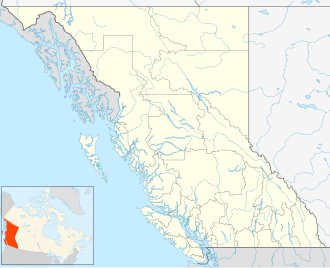History
In 1992, the government of British Columbia announced its Protected Areas Strategy that would protect 12% of the province by 2000. [1] The west side of the Squamish River, which is recognized as a critical wintering site for bald eagles, was selected for protection as part of the strategy, and Brackendale Eagles Provincial Park was formally established in 1999. [2] The park is the holder of the world record for bald eagles counted, with 3,769 in 1994. [2]
Ecology
The park is a critical wintering site for bald eagles, who feed off salmon in the Squamish and Cheakamus Rivers during the winter, and the park hosts approximately 148 species of birds. [2] The park is also home to several large mammals species; these are black bear, Roosevelt elk, bobcat, cougar, grey wolf, Columbian black-tailed deer, and coyote. [2] There are many small mammals, such as northern flying squirrels, yellow pine chipmunks, and snowshoe hares. Reptiles and amphibians are also present in the park, although with a smaller variety of species than that of the park's mammals. [2]
This page is based on this
Wikipedia article Text is available under the
CC BY-SA 4.0 license; additional terms may apply.
Images, videos and audio are available under their respective licenses.

